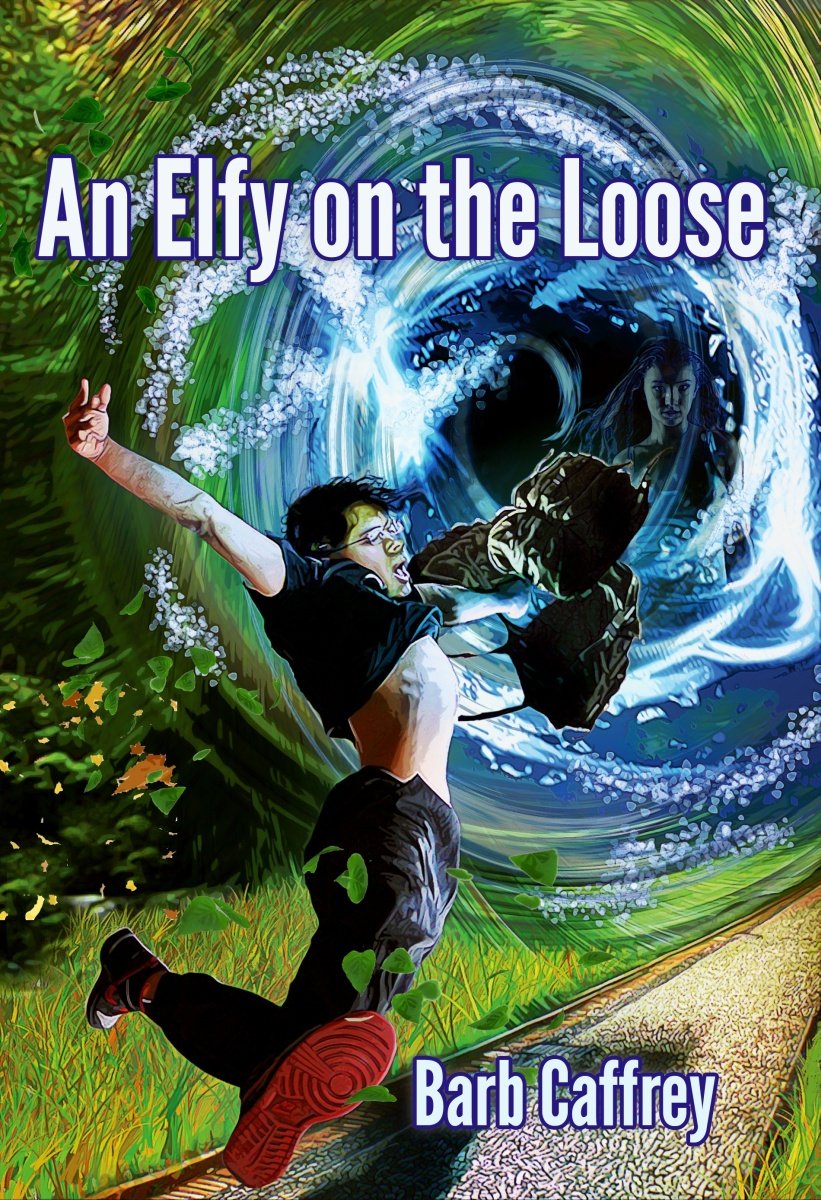http://www.stephanie-osborn.com
Barb has been participating in the Elements of Modern Storytelling series of blog articles. She is a professional book and music reviewer, as well as recently having her first book published, An Elfy On The Loose. She pitched an interesting guest blog at me and I liked it -- a lot! So here it is for your enjoyment.
~~~
"Why Use Parallel
Universes in Fantasy?"
by Barb Caffrey
Some readers of my debut YA urban fantasy/romance novel, AN ELFY ON THE LOOSE, have had one
question: Why did you use the parallel universe theory for the location of the
Elfy Realm?
But first, you need to know what the parallel universe
theory is.
The parallel universe theory – that there are universes like
our own, that developed much like our own, but history went differently there
so it's possible to have different versions of the same person, perhaps, or
different races emerging from what is substantially the same world – has been
used to great effect by many science fiction novelists in the past, including
Stephanie Osborn herself in her Displaced Detective series.
But fantasy novelists have not used it very often.
Instead, novelists such as L.E. Modesitt, Jr., Alan Dean
Foster, Barbara Hambly, and more recently, Christopher Nuttall, have sent
people from our world into a completely different fantasy world, one where the
rules are completely different. That allows for magic. It also allows for
science, too, as brought in by the protagonist – most particularly by Modesitt,
Jr. and Nuttall. But primarily, this is to account for the alienness of the
world and everything within it.
As a plot device, that's fine. But it's not the one I came
up with.
Why? Well, I gravitated far more toward the theory that
eldritch beings have always been a part of our world. (Hence the Bedlam's Bard
universe as conceived of by Mercedes Lackey, Ellen Guon and Rosemary Edghill.)
But I didn't think the idea of Underhill would work for me…and besides, the
idea had already been done very well.
So I decided that each race would have its own Realm, which
is all a version of Earth. In addition to the Elfys and the Elfs (do not call
them Elves in the Elfyverse, or that
will get you killed most unpleasantly), there's the Trolls, the Dwarves, the
Orcs, and many, many more, all living on various parallel dimensions of Earth
and going by these names: The Elfy Realm. The Elf Realm(s). The Dwarven Realm.
And so on.
I figured it's much easier to have one world that's split
via the parallel universe theory than it is to send someone somewhere else
where nothing is familiar whatsoever. I liked the idea that the supposedly
familiar could also be intensely strange – as the Elfys, at first, know very
little about us, the Humans, and we definitely
know even less about them. And I really liked the idea that a magical being
like a Dark Elf – that is, a being committed to violence and darkness and death
for its own sake – would "pass" as Human because we've forgotten that
Dark Elfs exist.
As to how I got around the magic part, considering our world
does not seem to be magical? Well, as many other novelists have done, I said
that magic exists, but our world has mostly forgotten about it.
The theory of parallel universes, in short, enhances my
story because it gives me a huge canvas to play with. Bruno's upcoming
adventures include a trip to the Elfy Realm (he must tell off those twits
comprising the Elfy High Council somehow), and future novels have adventures in
the Troll Realm, more in-depth looks at the Elfy Realm, and of course a great
deal continues to go on in our own world, the Human Realm…
So despite there being much magic and mystery involved in
the creation of AN ELFY ON THE LOOSE,
underneath it all lies a solid principle of physics – even if it's not used
exactly as most physicists would probably approve. And yes, I did it
deliberately, because it fit the story and worked as a plot device and gave me
a great deal to work with.
My view of the question I started with is simple: Rather
than asking, "Why did you use the parallel universe theory," why not
ask why other fantasy novelists haven't
used the parallel universe theory?
That question is exactly why I used it.

